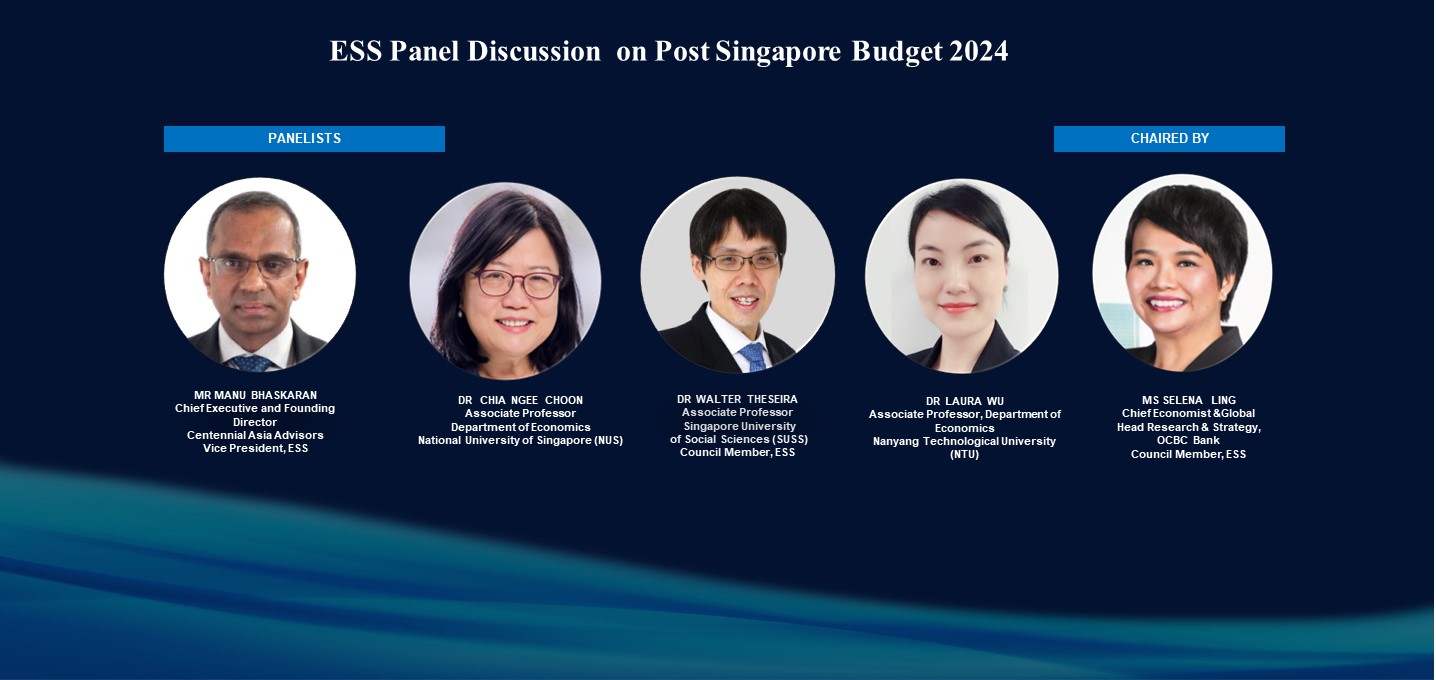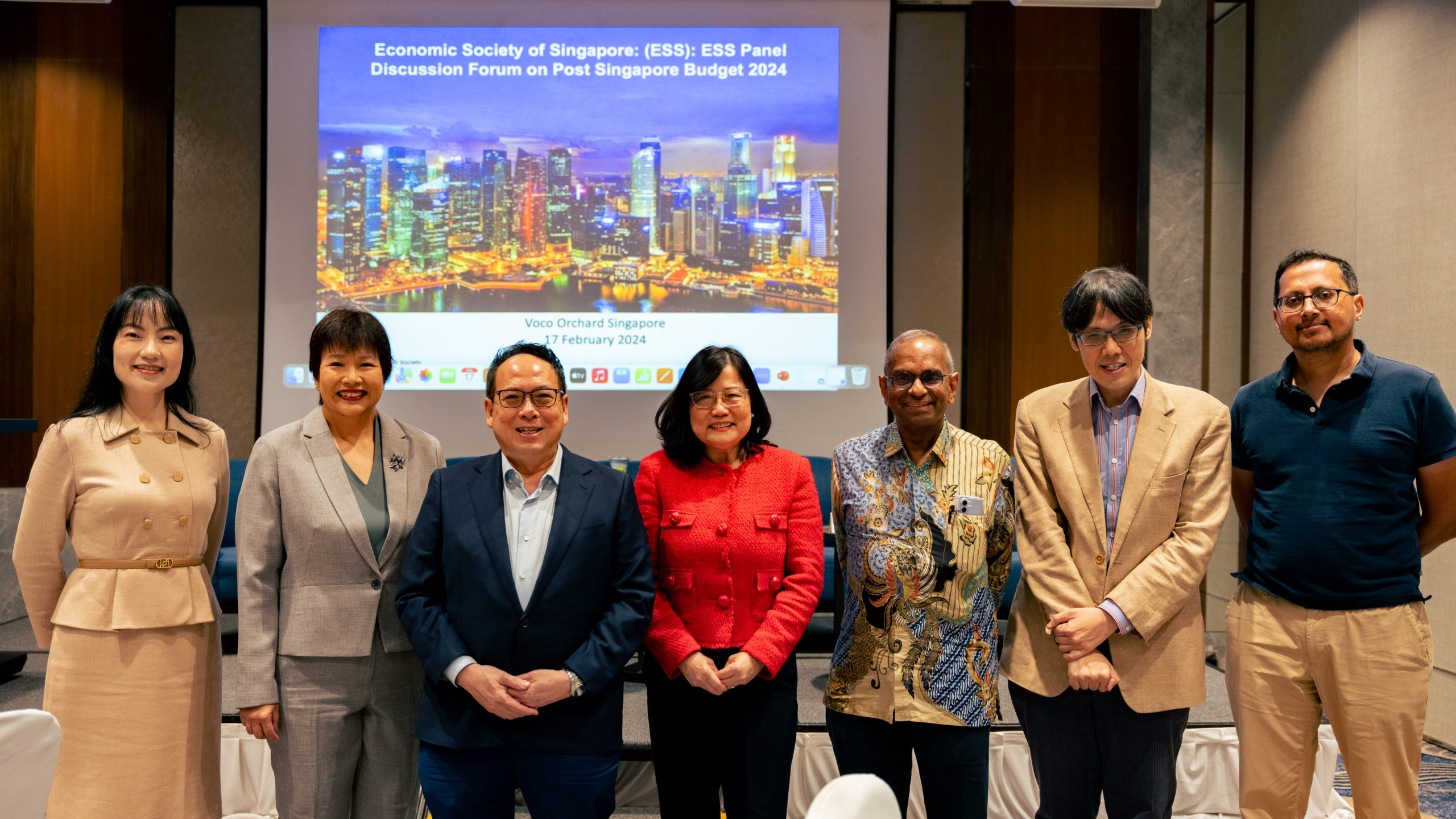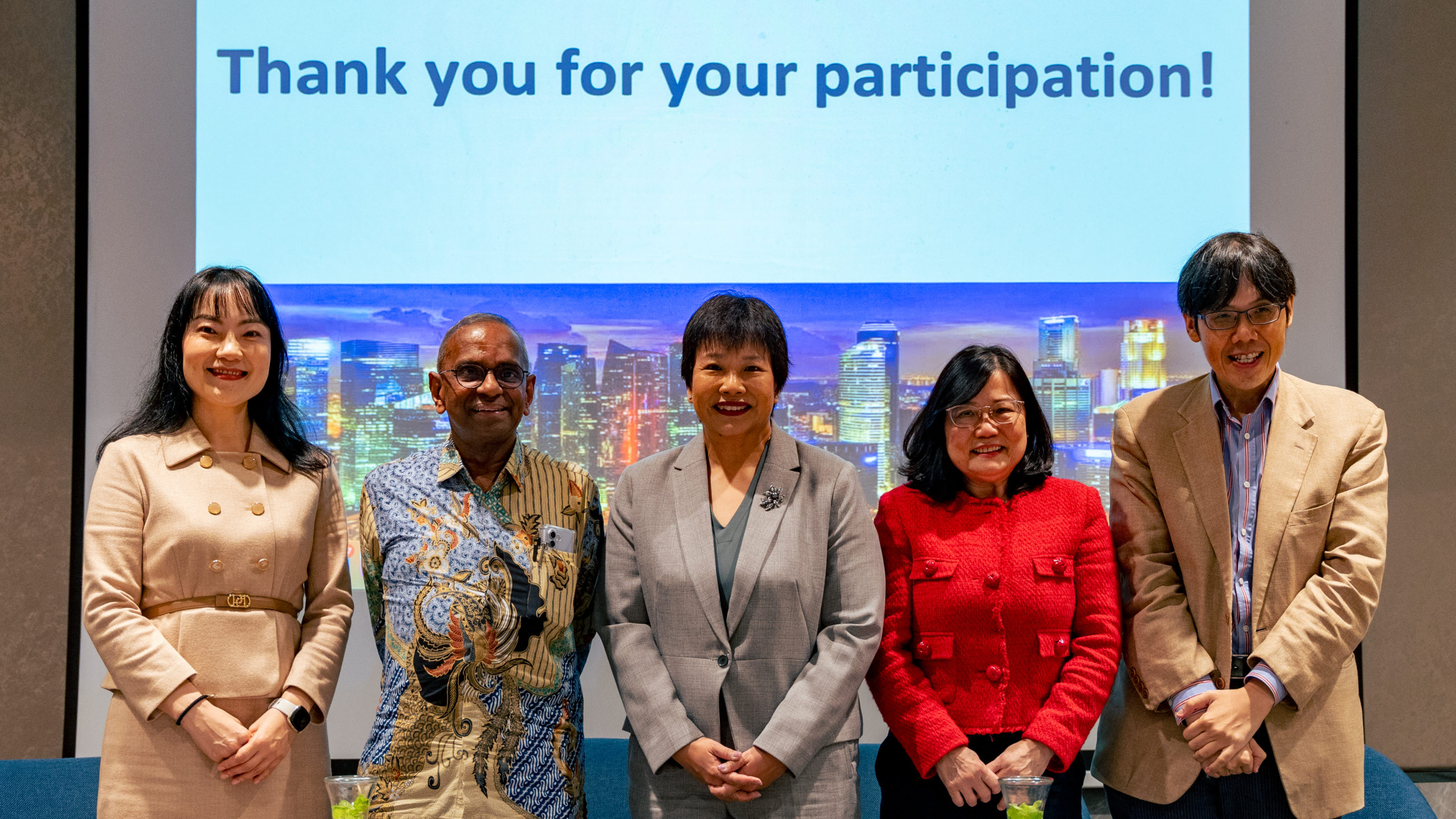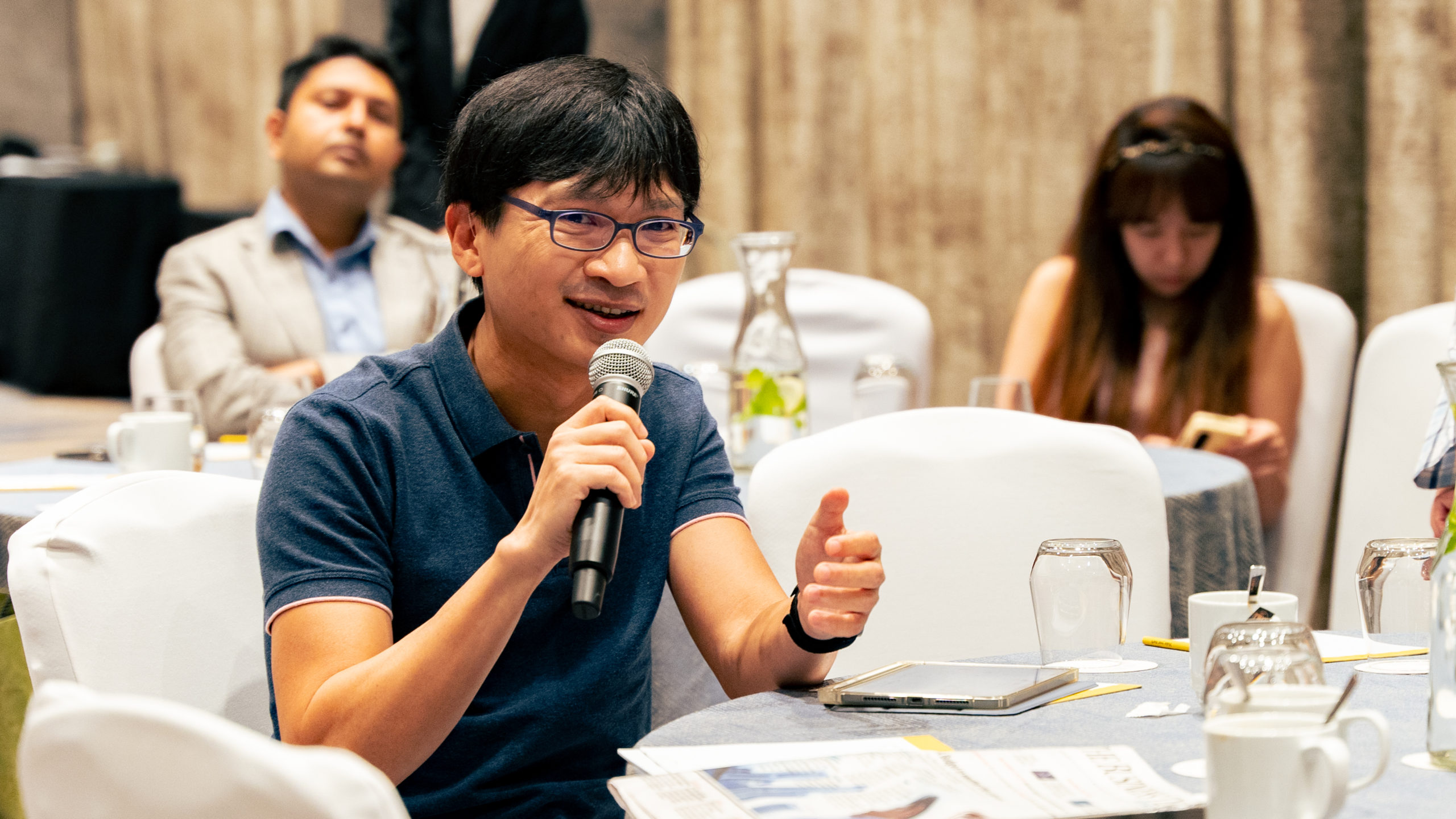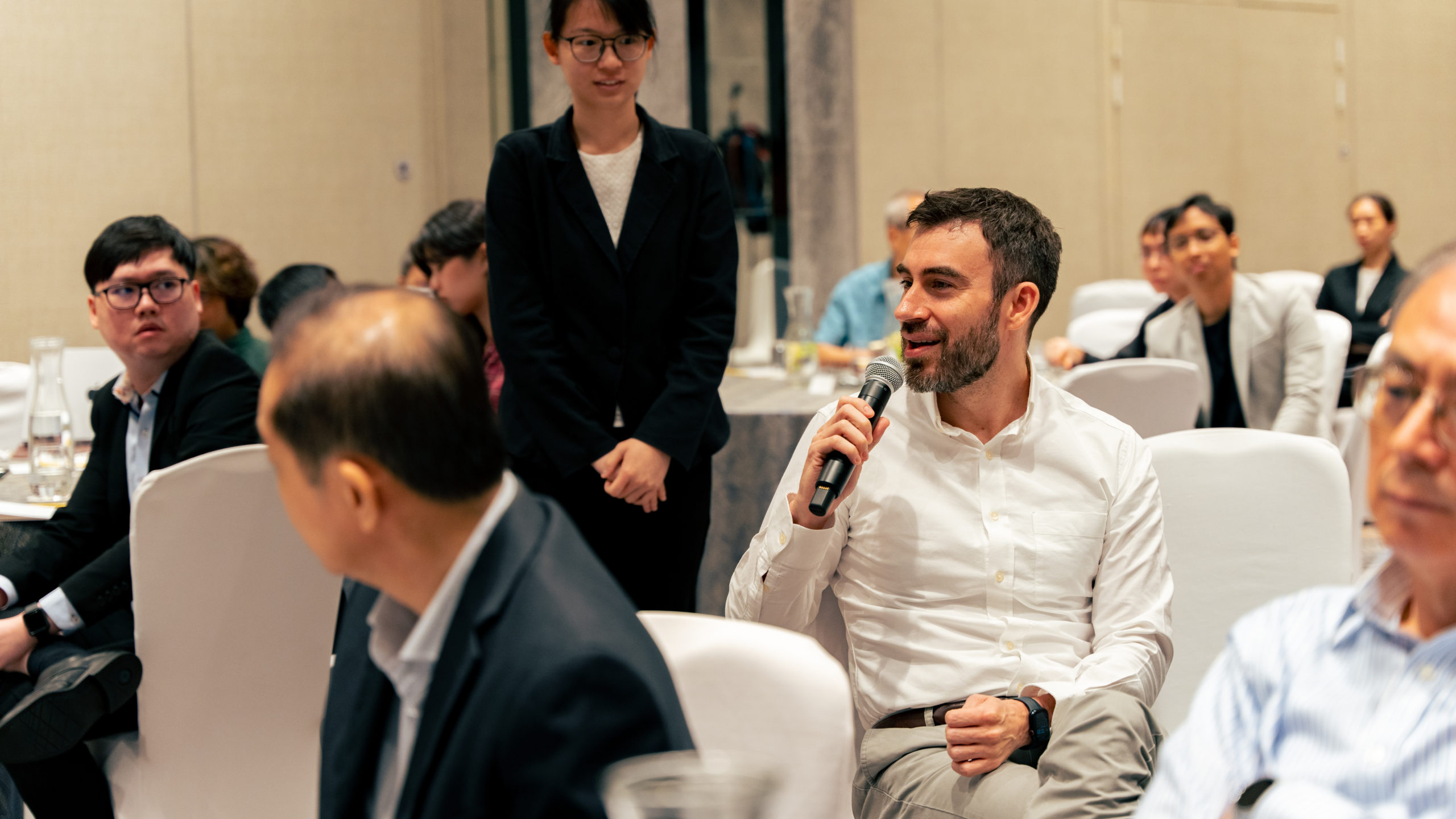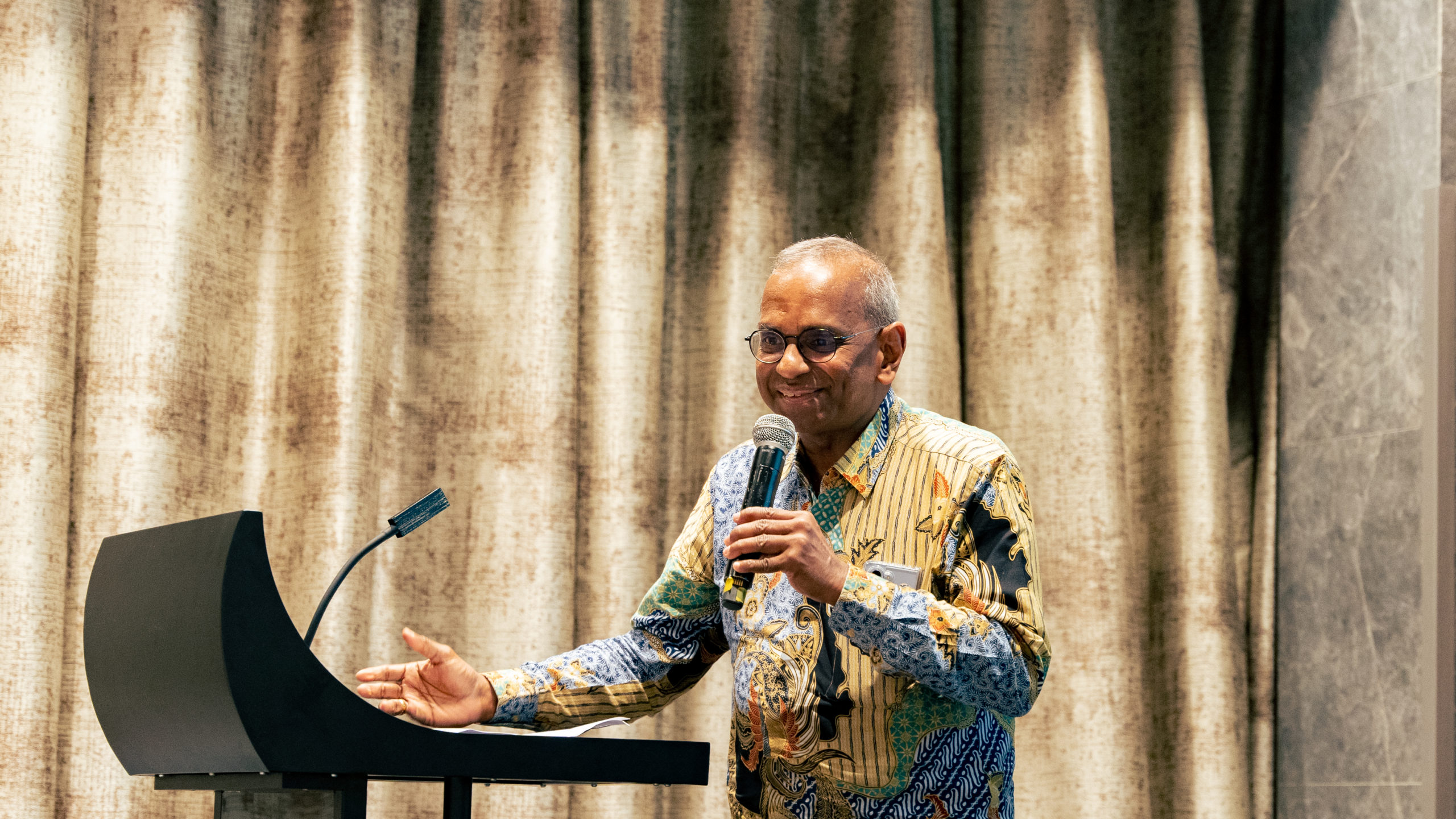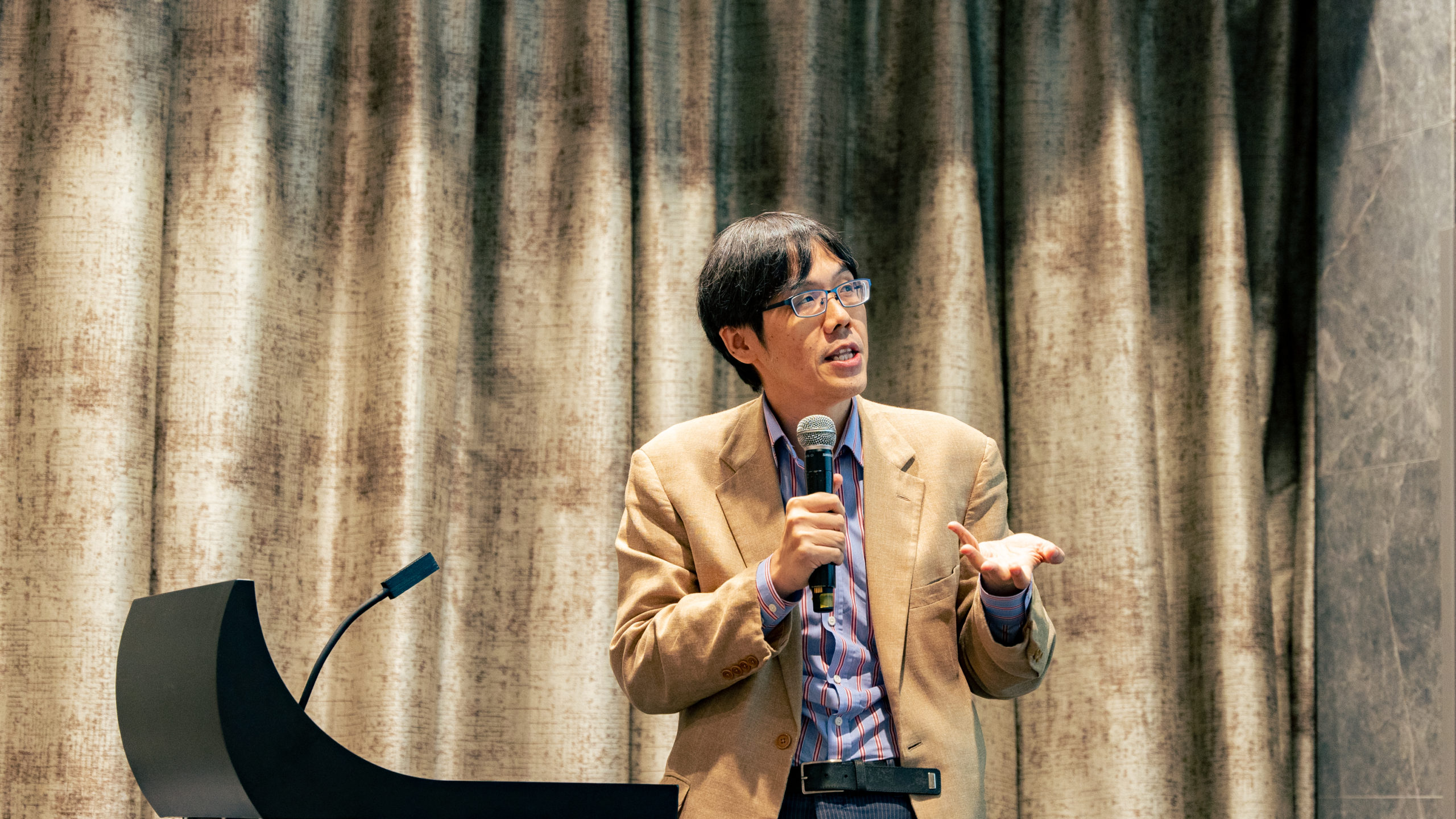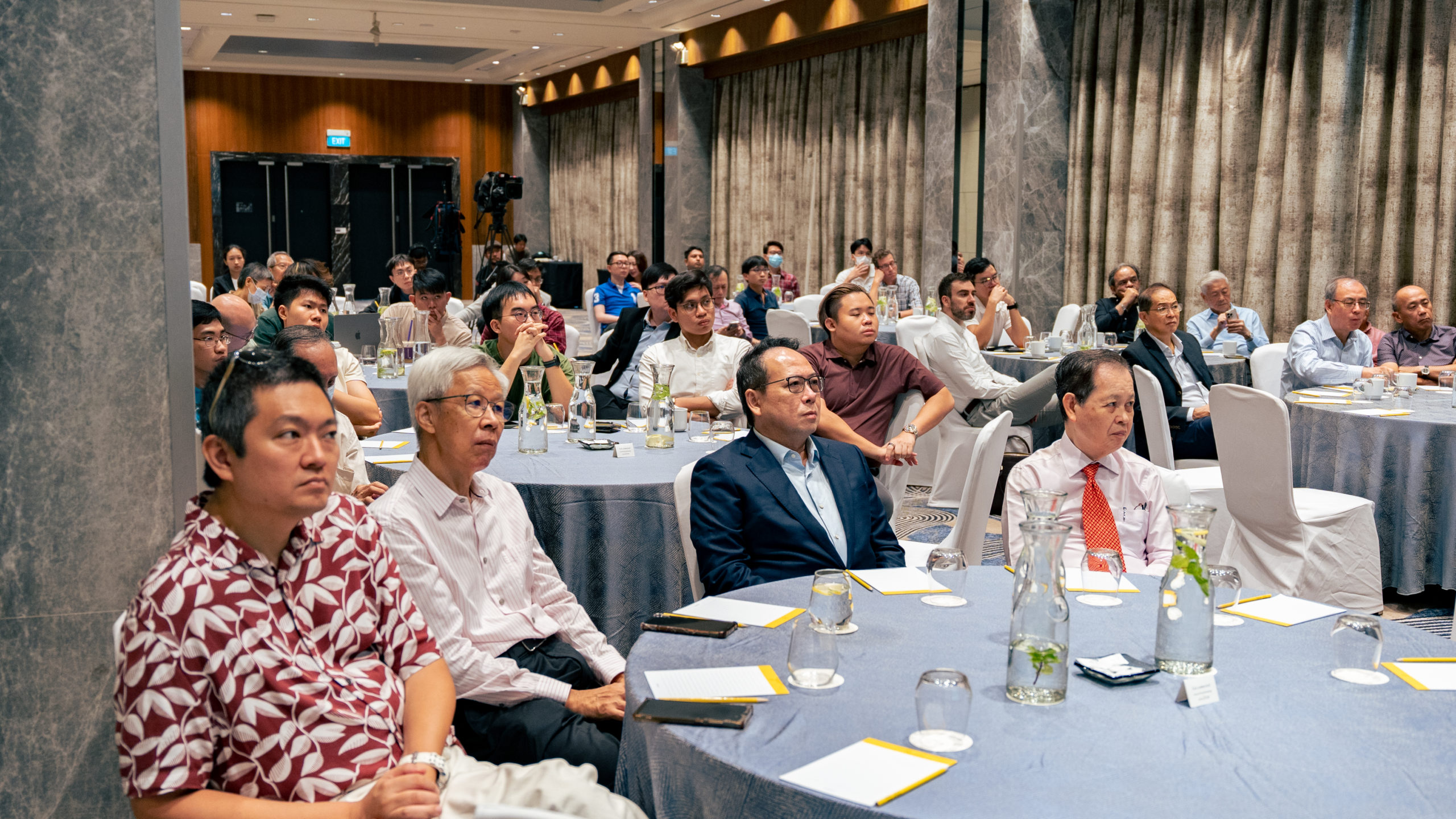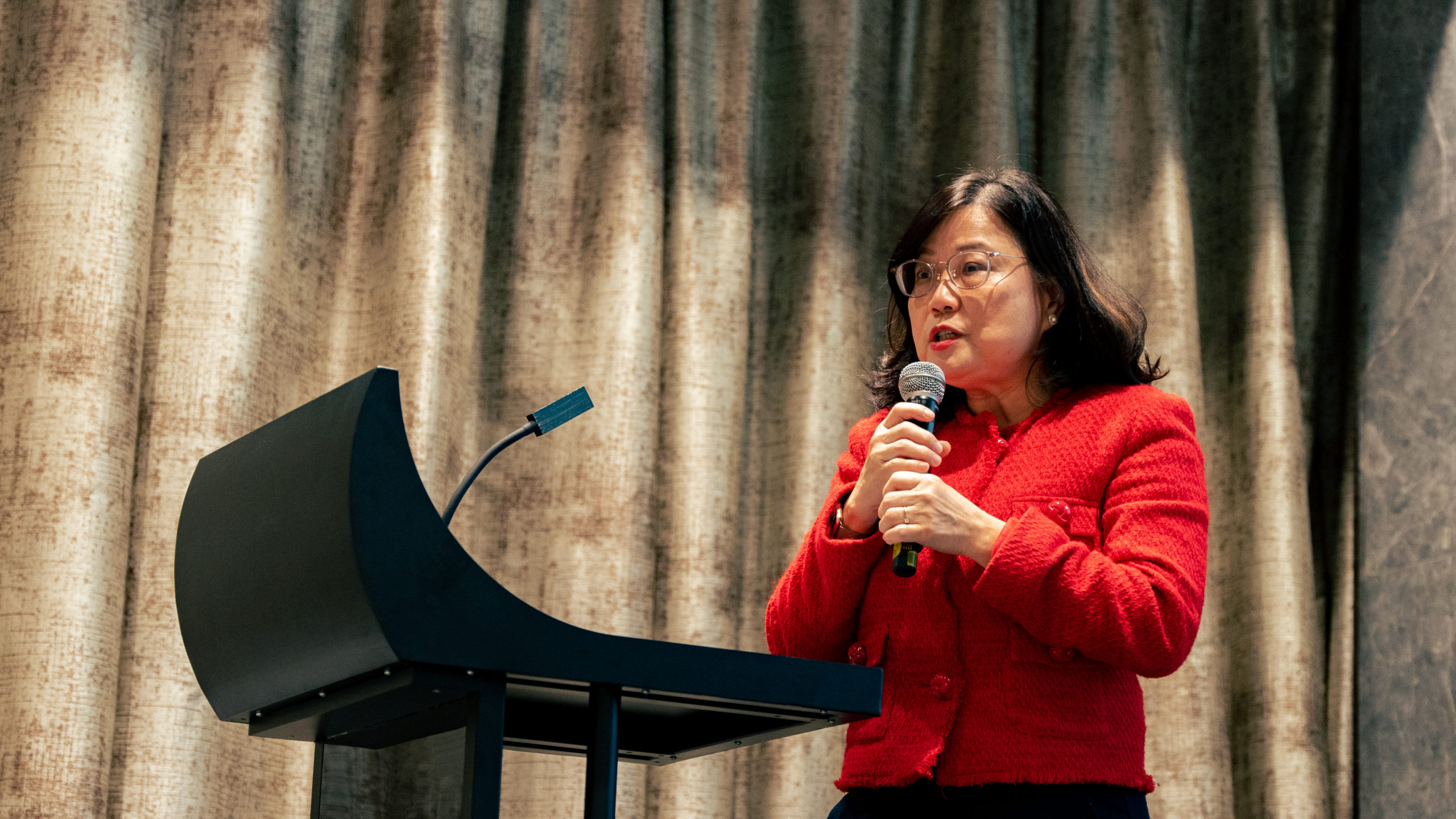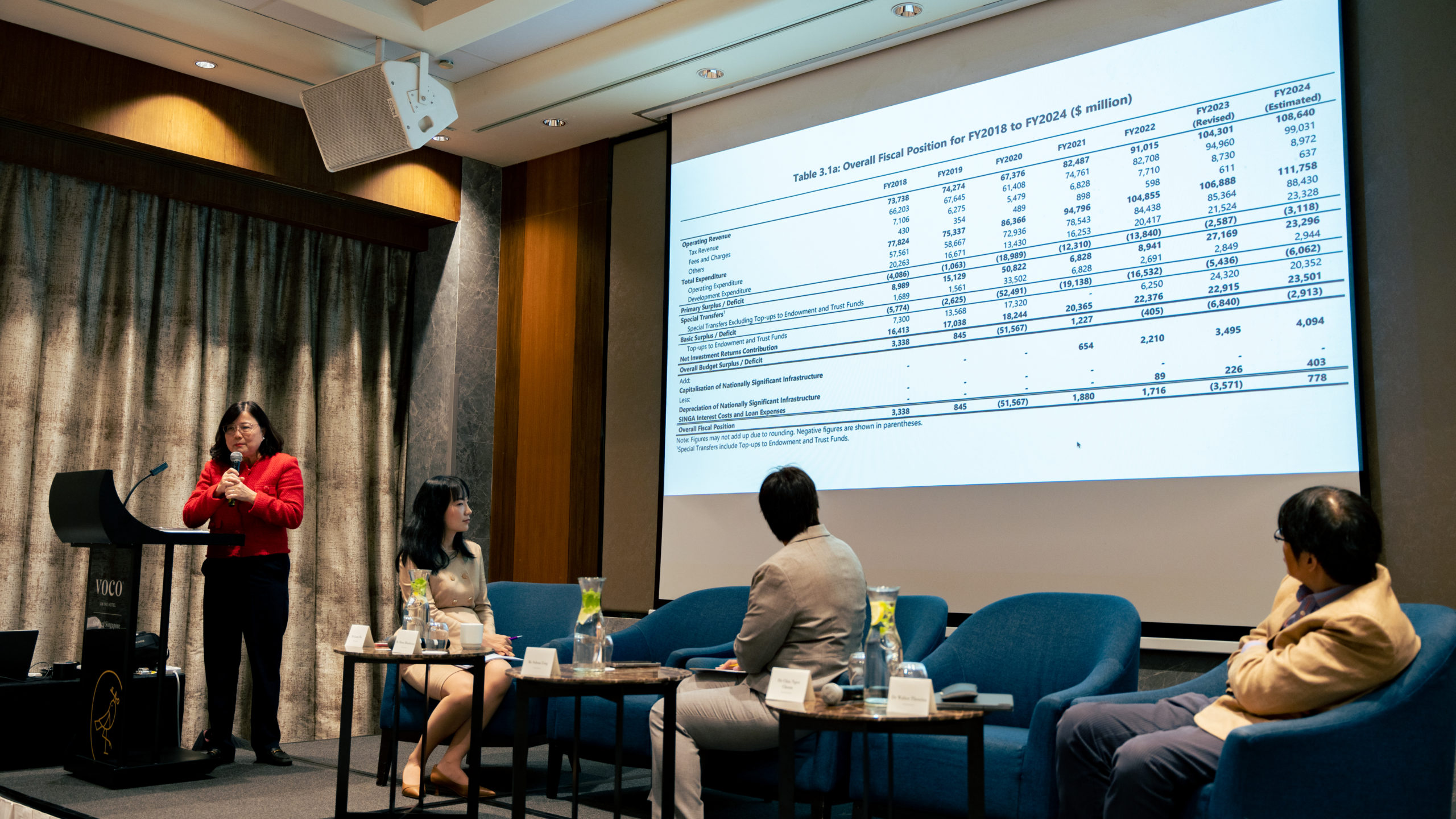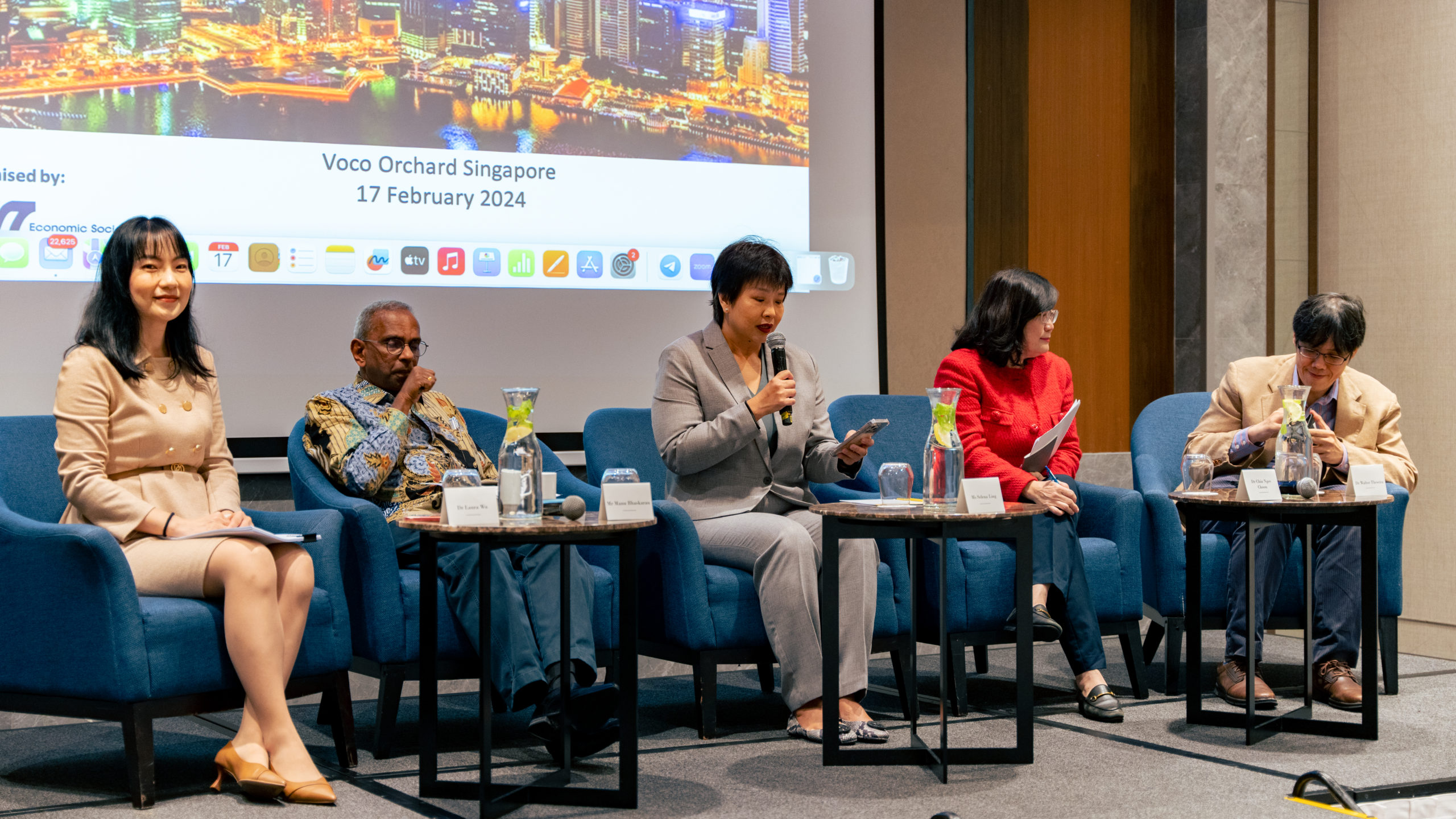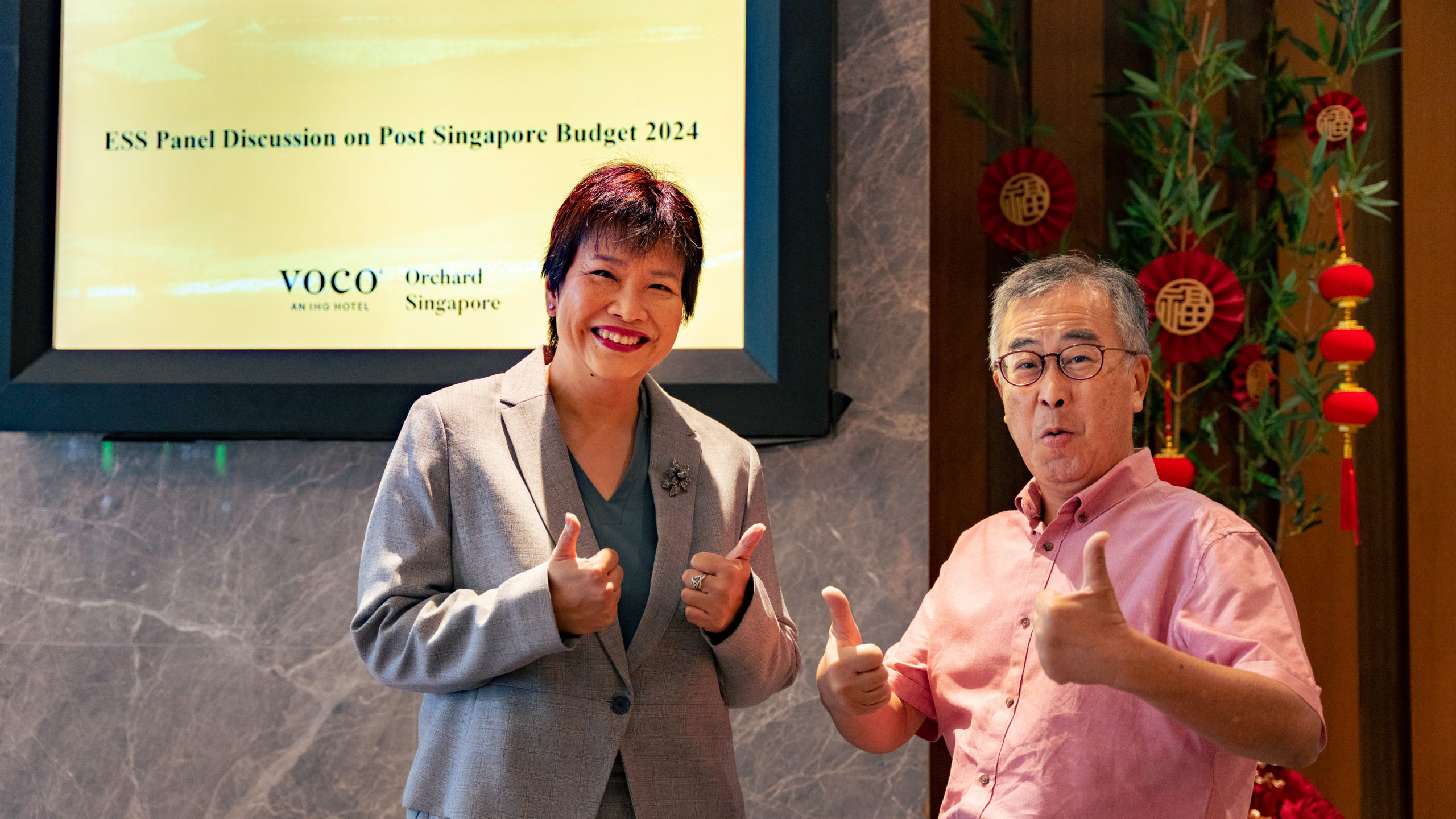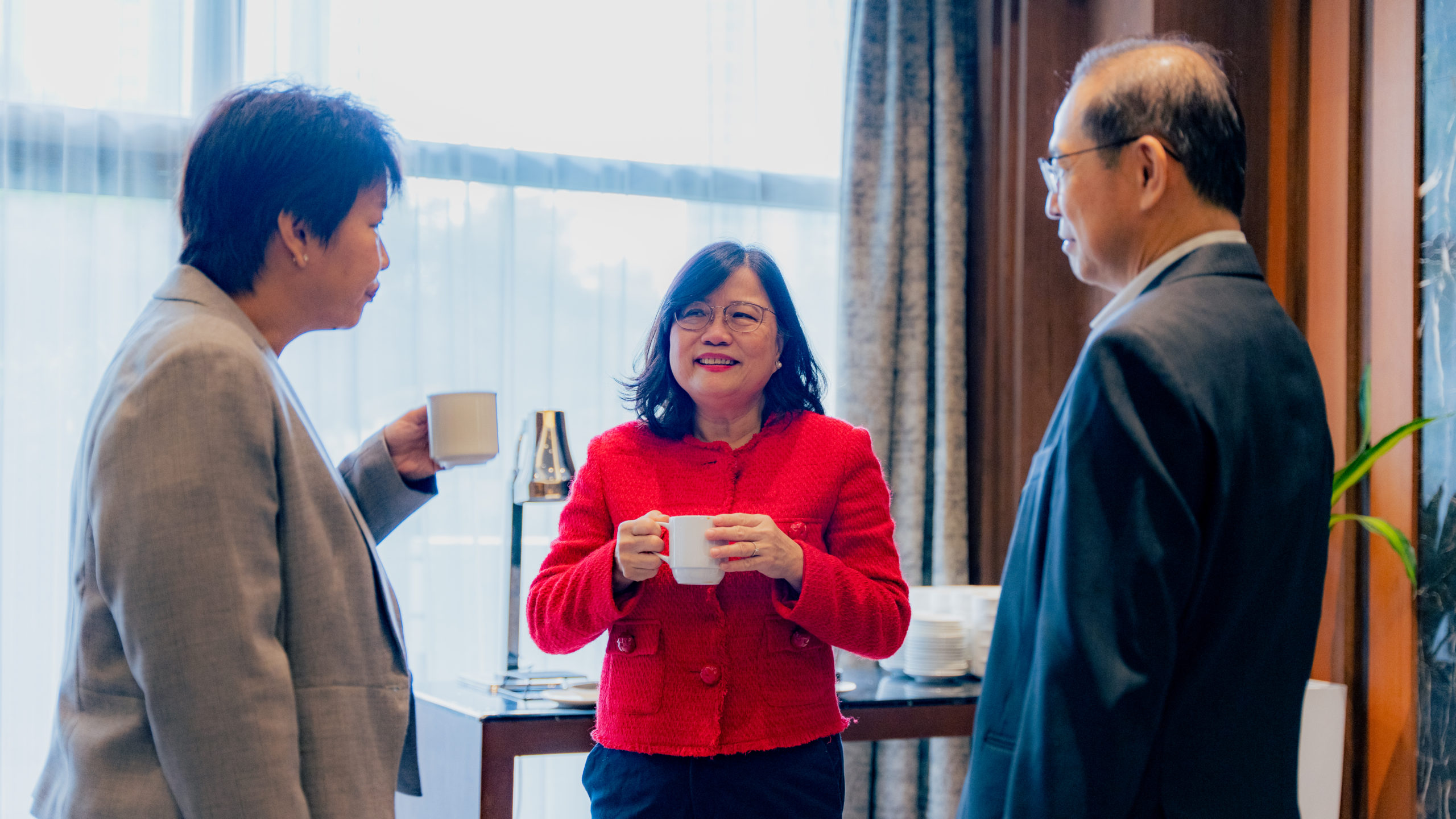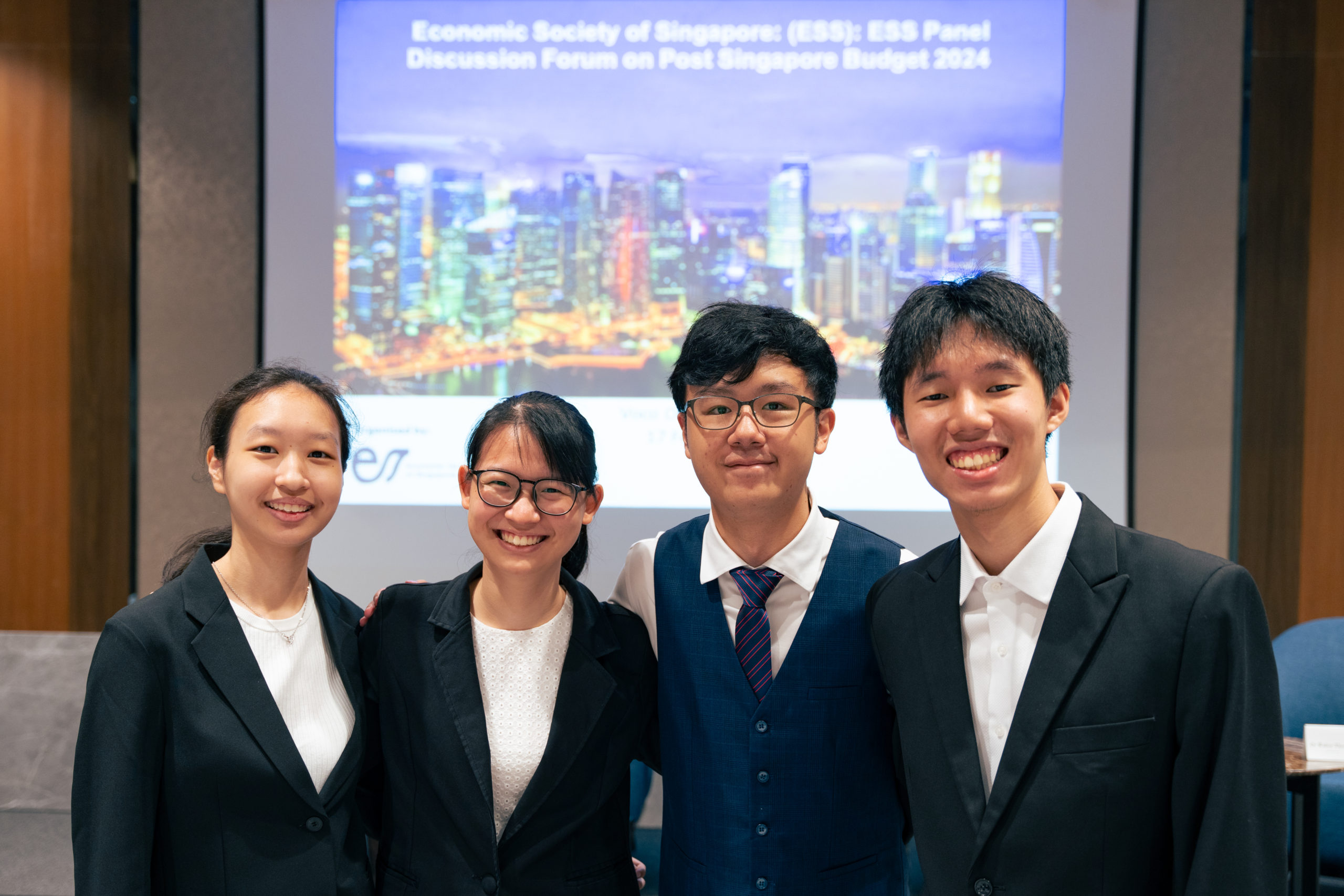The announcement of Singapore’s FY2024 Budget on 16 February by Deputy Prime Minister (DPM) and Minister for Finance Lawrence Wong is the inaugural Budget under Forward Singapore (Forward SG) that outlines the government’s key socio-economic priorities and our fund distribution to achieve them. Since Independence, the Budget has been our strategic financial plan to address the complex challenges confronting us, set our national priorities, and build a resilient future together.
The Economic Society of Singapore (ESS) hosted a Panel Discussion on Post Singapore Budget 2024 on 17 February to exchange views on this highly consequential Budget amidst our emergence into a new post-COVID era characterised by increasing geopolitical rivalry and a domestic political transition. Recovering from the negative fiscal position in 2020, the panel will discuss the Budget’s economic and financial implications and how it will contribute to our social compact and fortify our national security.
Budget 2024 as part of Forward SG
Forward SG is an exercise launched by DPM Lawrence Wong in 2022 to review and refresh Singapore’s social compact for the next stage of nation-building and development. It is a nationwide engagement to consolidate opinions from citizens on the roadmap for our next step of progress. Under the movement, it comprises 6 thematic pillars, two of which are the empowerment of our economy and jobs, and the stewardship of our environmental and fiscal sustainability. As DPM Wong mentioned in his Budget Statement, “… In this Budget, we will roll out the first installment of our Forward Singapore programmes…”, this highlights the importance of analysing the Budget against the broader backdrop of Forward SG.
Associate Professor Chia Ngee Choon (Department of Economics, National University of Singapore) shared in her opening remarks that the Budget was aligned with the Forward SG initiatives. She highlighted the increased government expenditure on social protection programs that focus on housing, healthcare, employability, reskilling, and up-skilling in education. As an “Inclusive Budget”, it targets the tackling of immediate challenges and builds capabilities in the long run. Moreover, it enhances our human capital to equip workers for the long term. She concluded that corporate tax rebates for businesses and financial assurances for families and seniors all work towards fostering a more inclusive and equal society, where there are more avenues toward equality and mobility, through uplifting lower-wage workers and reducing wage disparities.
As SkillsFuture, our workforce, the Central Provident Fund (CPF), housing, and healthcare constitute the core pillars of our social compact, this Budget is a statement on strengthening our social pillars as part of Forward SG.
Economic Growth and Priorities
On economic growth and priorities, DPM Lawrence Wong further mentioned that Singapore is aiming for an average of 2 to 3% growth per annum over the next decade. Of this, about 1 to 2% should be from productivity improvements. While he stated that this is an ambitious goal, with only a few countries having managed to sustain this high productivity growth, Singapore has to aim high and far to keep moving forward and provide our people with more opportunities and a better quality of life.
Associate Professor Laura Wu (Department of Economics, Nanyang Technological University) shared in her speech that in recent years, actual growth did not directly result in more job opportunities. With advanced technological developments, firms were able to replace labour with machines to increase productivity and hence growth. Drawing reference from a research paper titled “The Race between Man and Machine: Implications of Technology for Growth, Factor Shares, and Employment” by Daron Acemoglu and Pascual Restrepo, she raises the concern of how replacing labour with machines will bring about a negative impact on employment in terms of the decline of value-add that human labour can bring to the job. While technological advancements will be able to create new tasks and job opportunities for Singaporeans, the transition period of adopting new technology and creating new tasks may enlarge income inequality in our society. She concluded that the labour market and education policies therefore play a crucial part in reducing the negative impacts of technology on employment wages and inequality.
Fiscal Packages and Support
With the subdued global economy and increasingly less peaceful and cooperative international environment, Singapore’s economy grew by a modest 1.1% last year, just avoiding a recession. To better support Singaporeans in these trying times, the government will be enhancing some existing fiscal packages and support.
The Assurance Package, previously enhanced last September, is to be boosted further by $1.9 billion. It aims to better support Singaporean households amidst the GST hike, slowing economic growth, and increased inflation. Under the enhanced package, all Singaporean households will receive an additional $600 in CDC Vouchers to help with the increasing cost of living. Being an “Inclusive Budget”, as Dr Chia termed it, there is also additional targeted support for those who need it more. Eligible HDB households will receive additional one-off U-Save rebates to help households cope with increases in their utility bills and additional one-off Service and Conservancy Charges rebates.
The Budget also marks the introduction of the Majulah Package, first brought up by Prime Minister Lee Hsien Loong at the National Day Rally speech last year. Just as the Pioneer Generation and Merdeka Packages looked after the seniors, the Majulah Package aims to support “young seniors”. Covering all Singaporeans born in 1973 or earlier will also benefit those in their twilight years. With healthcare costs being a growing concern as we age, a one-time Medisave Bonus will be given to all seniors, with younger seniors with fewer means receiving more. To help low-income individuals better prepare for retirement, those with retirement savings below the Basic Retirement Sum will receive a one-time Retirement Savings Bonus of between $1,000 and $1,500. In addition, an annual Earn and Save Bonus will be provided to seniors earning up to $6,000 per month for as long as they work, to help them accumulate more retirement savings.
Singapore’s Pre-Funding Model
Interestingly, beyond the aforementioned fiscal packages and support, Singapore’s Endowment and Trust Funds, as sums of capital money set aside from the government’s annual Budget to ensure a reliable source of funding for longer-term programmes, make up our unique “Pre-Funding” model, as Associate Professor Walter Theseira (Singapore University of Social Sciences, ESS Council Member) coined it.
Notable top-ups to these funds include a significant $7.5 billion injection into the Majulah Package Fund, a $2 billion injection to the National Productivity Fund, and a $2 billion addition to the Financial Sector Development Fund. Yet, with a combined approximately $25 billion spending on these funds, does this pre-funding scheme adhere to Singapore’s position of fiscal prudence and its maintenance of a balanced budget?
Dr. Theseira explained that while the majority of our government’s liabilities are government securities which are primarily CPF-related, around 4% has consisted of these earmarked social purpose funds. In fact, with a continued increase in our social security spending as a result of an ageing demographic and rising healthcare costs amongst other challenges, funds earmarked for these social programs have grown to a comparable 48% of Budget expenditure, up from 4% in the 1990s. This raises the question: What are the implications for the Budget and our Reserves?
Firstly, it is important to note that pre-funding may cause divergences between actual government expenditure and on-budget government spending, leaving our true fiscal position ambiguous as funds for pre-funding seem to be reflected in the Budget of the year the funds were established instead of the year of actual expenditure. This may introduce vagaries as to the proportion of such funds being financed by earlier earmarked funds as compared to the present Budget. Secondly, while our government is constitutionally mandated to maintain a balanced budget over a term of government, any government surpluses can be redirected to these funds without being accumulated in our past Reserves. This signifies that government surpluses in the wrong hands can be misappropriated to diminish our past Reserves. Furthermore, a fundamental political consideration is surfaced: Should a past term of government, through allocating government surpluses to earmarked funds, influence the present term of government to enact programmes supported by these funds? Shouldn’t the budgetary policies and programmes be confined to the term of the incumbent?
Finally, Singapore’s “Pre-Funding” model may generate growth in our unreported Reserves. If the funds’ fixed interest income is constantly lower than the long-term returns on our Reserves, the unreported Reserves will grow by the difference. In closing, Dr. Theseira pointed out that Singapore possesses a unique position to save for future spending obligations unlike other countries that rely on deficit or current account spending, most notably the United States recording a whopping USD$1.7 trillion in deficit spending for 2023. Besides accounting for these distinct features in our government’s Budget when scrutinising it, how the Singapore government leverages and optimises our unique “Pre-Funding” model, not only to prepare for rainy days but to grow our Reserves and maintain a balanced budget that is responsible to our current and future generations, will be key and the best reflection of this model’s success or shortcomings.
New Funds and Top-ups under Budget 2024
Aside from the Majulah Package Fund, the funds receiving the most from the Budget are the GST Voucher Fund and Future Energy Fund which received a top-up of $6 billion and $5 billion respectively.
The GST Voucher Fund funds the permanent GST Voucher scheme. As GST is typically regarded as a regressive tax (although it forms Singapore’s larger tax and benefits system which is progressive), the recent and upcoming GST hike will likely hit harder on lower-income individuals and households. This timely injection to fund the GST Voucher scheme shows the government’s commitment to permanently defray GST expenses for lower- and middle-income households.
The newly set up Future Energy Fund aims to support infrastructure investments as Singapore transforms its energy sector to greener alternatives. Having made the ambitious goal of achieving net-zero carbon emissions by 2050, Singapore is looking to decarbonise its energy sector which contributes to 40% of emissions today. Furthermore, 95% of our electricity is generated from natural gas, a non-renewable source of energy, and the shift to greener alternatives will take significant time and resources. The establishment of the Future Energy Fund is forward-looking and provides support for efforts towards attaining low-carbon energy sources for a greener and more sustainable Singapore.
Fiscal Position and Savings
With so many needs and goals to take care of, maintaining a balanced and appropriate Budget is no mean feat. As highlighted by Ms Selena Ling (Chief Economist and Global Head of Research and Strategy at OCBC Bank, ESS Council Member) the medium-term fiscal position remains tight. Government expenditure has been steadily increasing from 15% of GDP in the late 2000s to 18% today and is projected to increase further to 20% by 2030. Though Singapore’s government has generally been prudent on spending, the COVID-19 pandemic and its resulting slower growth and support needed by the economy led to deficits in FY2022. Projecting ahead, some costly yet essential items will require increased funding, such as healthcare, social needs, and the environment. Thus, sufficient revenues have to be raised to maintain a balanced and sustainable budget. With the “Pre-Funding” model and increased tax revenue from the recent tax hikes, the Singapore government is likely able to achieve this tall order provided they spend judiciously as they did before.
Dr. Chia pointed out that it may be difficult to compare Singapore’s overall fiscal position with that of other countries since the way Singapore determines its fiscal position differs from the way the International Monetary Fund (IMF) determines fiscal position. Since FY2021, Singapore has included the capitalisation of Nationally Significant Infrastructure, in addition to overall Budget surplus/deficit in determining the overall fiscal position. The addition of this item has occasionally helped turn overall Budget deficits into surpluses such as in FY2022. The significance of this addition remains to be seen since it is understandable that different countries evaluate their fiscal positions in different ways to their specific needs.
Mr Manu Bhaskaran (Chief Executive and Founding Director of Centennial Asia Advisors, Vice-President, ESS) felt that the Singapore government has been spending too prudently and “should optimise (and) not maximise savings”. He believes that the government has been aiming to maximise savings and while saving up for rainy days is important, one should not sacrifice significant aspects of current consumption. He proposed that the amount of money required to weather existential emergencies and major shocks be extrapolated based on Singapore’s past experiences, such as the approximate $61.6 billion spent on the pandemic, and to then determine a suitable amount of savings for the Reserves, whereby the remaining surplus can then be spent on various present societal needs.
This is different from how the government views Singapore’s Reserves. During an interview with Channel News Asia, Prime Minister Lee Hsien Loong stated with regards to our Reserves that “there is no such thing as enough” because once the Reserves are used up, they cannot be built up again as Singapore is no longer the fast-growing economy it was before when developing and societal needs and citizens’ expectations of the government have grown substantially. Additionally, major crises are hard to predict and it is difficult to foresee how much each crisis would require. Therefore, the government’s current fiscal prudence approach aims to benefit not just Singaporeans today, but also future generations, and is key to a sustainable fiscal future.
Policies Beyond Budget 2024
Indeed, this Budget holds high promises about economic growth and benefits that citizens can stand to enjoy in the future. To sustain these efforts, continued fiscal policy can allocate funds for the development of digital infrastructure to facilitate smoother adoption of digital tools and platforms by firms, fostering their resilience and productivity. SkillsFuture plays a crucial role in the upskilling of our society, and to further improve and fully reap the benefits from it, the strengthening of SkillsFuture in areas like education, workforce training, and adaptability is important. Especially in this volatile world, reskilling and further upskilling through lifelong learning is key to maintaining one’s career.
Singapore needs to secure its fiscal position too to compete and attract Foreign Direct Investments (FDIs). The new Base Erosion and Profit-Sharing (BEPS) 2.0 regime will provide Singapore with additional revenue in the short run, however, it might lose its advantage as a major location for global business. Therefore, the Refundable Investment Credit Scheme — which is awarded on qualifying expenditures incurred by the company in respect of a qualifying project during the qualifying period — is crucial in attracting high-quality investments into Singapore, and maintaining its advantageous position as a global business hub.
Lastly, strengthening our efforts on climate finance is increasingly necessary in ensuring that Singapore remains a sustainable city for all to live in. Incentivising more firms to undertake green initiatives will not only bring about lower costs and provide an opportunity for Small and Medium-sized Enterprises (SMEs) to boost their competitiveness against other firms but also contribute to a more resilient and sustainable business landscape that can also bring about a positive impact to our green city.
All in all, this Budget lays at a pivotal juncture in Singapore’s history with the first enactment of Forward SG programmes supported by this Budget within the larger leadership transition to our next-generation leaders, who have their foresight set on reinvigorating economic growth while refreshing our social compact. We look forward to what Budget 2024 brings in the coming financial year.
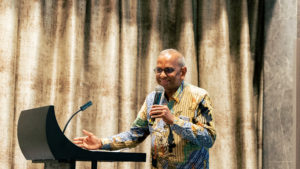


Click here for presentation slides.

Credit to: The Straits Times: Economists applaud Spore’s 2024 Budget, but some concerned about sustainability of cash handouts
Credit to: Zaobao: The government’s balance of payments for three consecutive fiscal years Economist: Paving the way for the general election before April 1 next year
Credits to: Mr Alden Lee (HCI), Ms Guan Zilu (HCI), and Ms Paige Ng (HCI) for the article. For the photos, credit to Mr Ryan Tay (HCI)
